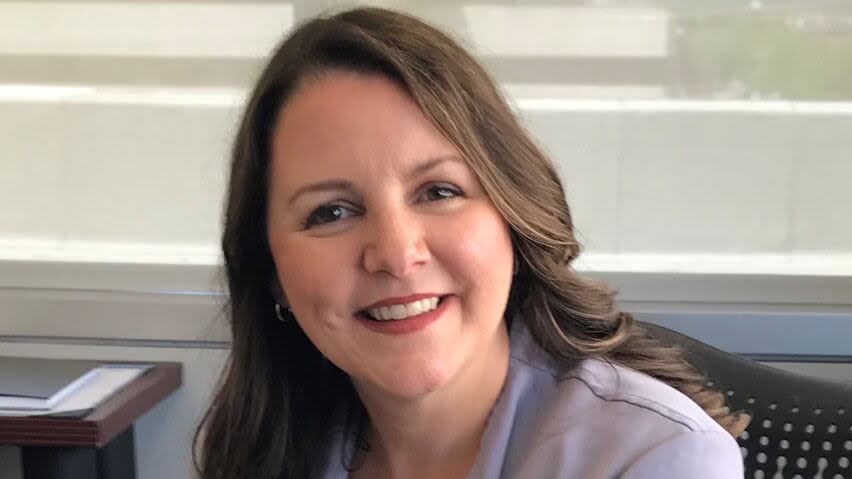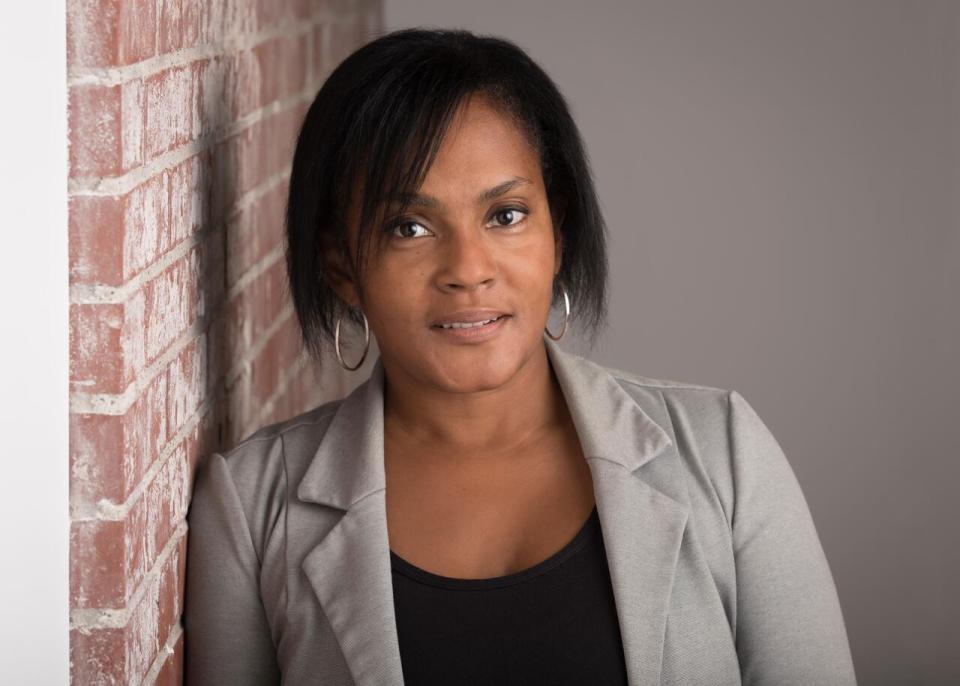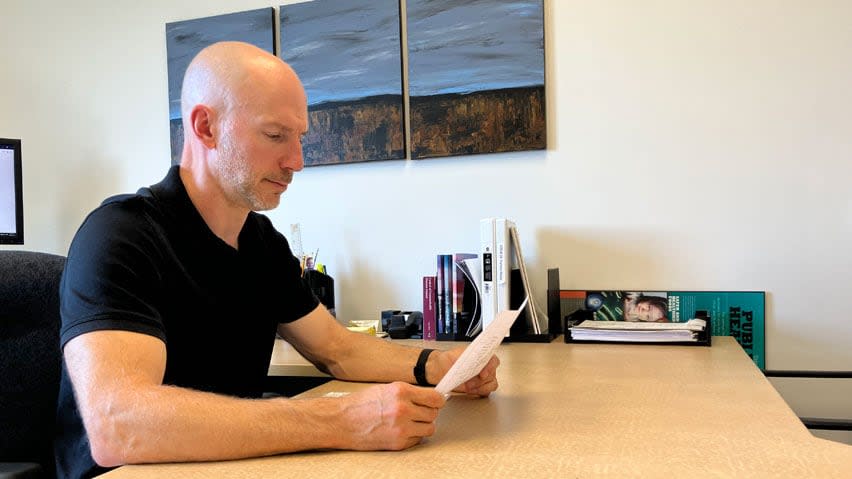Sooner top doctor post is filled, the better for public health, says former medical officer

It's been more than six months since Dr. Jennifer Russell announced her resignation as New Brunswick's chief medical officer of health, but the Department of Health has no update on the search for her replacement.
The recruitment process is ongoing, said department spokesperson Sean Hatchard.
The department "is working with an executive search firm to conduct a thorough search for this critical position," he said in an emailed statement late Friday, a month after CBC News first requested information.
He did not name the firm, elaborate on the process, or provide the job posting.
Nor did he respond to numerous questions, such what kind of interest they're seeing, or how Public Health is coping with being short-staffed while Dr. Yves Léger, the acting deputy chief medical officer of health, fills in as acting chief.
A former Nova Scotia deputy chief medical officer of health says these types of positions can be difficult to fill for a variety of reasons, including concerns of political interference.
But Dr. Gaynor Watson-Creed, who served for 16 years until 2021, says it's important to fill them as soon as possible to be fully staffed and able to respond quickly to whatever outbreak or emergency could pop up next.
'No taking your foot off the gas'
"There's no taking your foot off the gas," said Watson-Creed, who is now an associate dean in the faculty of medicine at Dalhousie University and an assistant professor in community health and epidemiology.
While the urgency of the COVID-19 pandemic has passed, there are other emergencies unfolding around the world, which must be watched closely, she said, citing measles and the opioid crisis as examples.

Dr. Gaynor Watson-Creed is an associate dean in the faculty of medicine at Dalhousie University and an assistant professor in community health and epidemiology. (Submitted by Dr. Gaynor Watson-Creed)
"That state of readiness is part of what we rely on the public health system for," said Watson-Creed.
Most emergencies tend to evolve rapidly, she said, and if public health officials don't get ahead of a situation, it can destabilize not just the public health system, but the entire health-care system and the population at large.
Vacancies 'destabilizing'
Vacancies can also have a cascading destabilizing impact, said Watson-Creed.
When someone is serving in an acting capacity, they're unlikely to get too comfortable in the position and "really dig into some of the issues," she said. It's more about making sure there are no "major fires" and that if any do emerge, they're snuffed out swiftly, "just kind of keeping the system afloat" until the position can be filled permanently.
In addition, other officials within the system may not engage with the temporary person fulsomely, "because what's the point? They're kind of here today, gone tomorrow."
As a result, it can be difficult to move anything constructive forward while there's that instability in the system, said Watson-Creed.
Acting deputy for more than 2 years
While Léger serves as acting chief medical officer of health, his acting deputy chief position is being filled by regional medical officer Dr. Arifur Rahman, the department spokesperson said.
The recruitment process to fill the deputy chief medical officer of health position permanently won't begin until the chief medical officer of health position has been finalized, said Hatchard.

Dr. Yves Léger is acting as chief medical officer of health until the vacant position is filled. (Submitted by Dr. Yves Léger)
Léger has served as the acting deputy chief medical officer of health since Dr. Cristin Muecke left in January 2022 to join Nova Scotia's Department of Health as a regional medical officer of health.
Region can be a 'hard sell'
Watson-Creed's "not entirely surprised" the top doctor position in New Brunswick hasn't been filled yet.
There are a number of challenges recruiting medical officers, she said.
It's a specialized field so there's only a small pool of people to draw from, even though she believes medical students are keen, particularly after the COVID-19 pandemic experience, and salaries are competitive — Russell made between $325,000 and $349,000 — especially without office overhead to worry about.
Another problem is that there's no residency training program in public health in Atlantic Canada, so if potential candidates have never been here before, "it's just a harder sell."
"As beautiful as we are and as welcoming as we are, it's still a lot to ask of somebody to come from [a larger centre] to be here."
Scientific integrity key
Perhaps the biggest factor though, according to Watson-Creed, is what kind of relationship potential candidates can expect to have with government.
She pointed to amendments to New Brunswick's Public Health Act in 2022, which one critic described as "the official politicalization of public health."
The changes give the minister of health more power in pandemics and other infectious disease outbreaks than the province's top doctor, former New Brunswick chief medical officer of health Dr. Wayne MacDonald warned at the time. That includes issuing orders to groups or provincewide that could close a public place, restrict public gatherings, or restrict travel to and from health regions, he said.
Dorothy Shephard, who was health minister at the time, had argued that when such sweeping measures are required, elected officials are more appropriate and constitutionally accountable to the public for restrictions which may violate Charter rights.
What type of autonomy will they have to make the decisions that they need to make? - Gaynor Watson-Creed, former N.S. deputy chief medical officer of health
"As a public health physician, I would be alarmed by that as the approach because when an emergency is unfolding, you do not have the time for a debate at cabinet," said Watson-Creed, who worked through three pandemics — the SARS outbreak in Ontario during her residency in 2003, H1N1 or swine flu in Nova Scotia in 2009, and COVID.
"And quite frankly, I would wonder what is the expertise of cabinet to be able to weigh in with what we know is science- and evidence-based practice around how you manage public health emergencies as they are unfolding."
That, said Watson-Creed, "will all be part of what will factor into the decision-making for candidates who are looking at that position and wondering ... how will their medical expertise be treated in that environment, what type of autonomy will they have to make the decisions that they need to make?"
"Those considerations around scientific integrity are big ones," when population health is at stake, she said.
Most public health and preventive medicine residency programs offer a senior management rotation that includes discussions of how to navigate the political environment and maintain your scientific integrity, said Watson-Creed.
"It's not easy," she said, but with willing premiers, ministers, government departments and government partners, "beautiful work can happen and great outcomes for the population as a result of that work."

